You’ve got to hand it to Dame Ethel Smyth. Working in an era when to be a British composer implied an automatic cultural cringe towards the continent, she didn’t miss a beat when Henry Brewster, the librettist of her 1906 opera The Wreckers, chose to write in French. The incoming music director at Covent Garden was the Frenchman André Messager; perhaps, Smyth reasoned, ‘to compose this opera in French would be the best chance of a performance in England of an English opera!’ Good call: 116 years later, you get the distinct impression that the opportunity to première the unheard French version of the opera (it’s been done numerous times in English) may have tipped the balance for Glyndebourne. Picnics, after all, are more easily digested when you don’t have to worry about the words.
This new production, directed by Melly Still, serves The Wreckersmagnificently. A huge scholarly effort underpins every musical detail; scores have been re-edited and orchestrations restored, and the three acts are performed completely uncut, a privilege that Glyndebourne does not extend to Tristan und Isolde. Still’s updated staging uses choral choreography, lighting (Malcolm Rippeth) and video projections (Akhila Krishnan) to gripping and often startlingly beautiful effect: a rain-streaked, wave-lashed junkyard reimagining of the Atlantic coast that mirrors and complements the elemental forces at work in Smyth’s surging orchestral and choral writing.
That’s the soul of the piece. Comparisons with Peter Grimes are not entirely invalid: both deal with outsiders threatened by the sea and a hostile community – here, a Cornish village where ship-wrecking is actively endorsed by the vicar Pasko (who emerges, in a majestic performance by Philip Horst, as the single most potent character). But how those orchestral seascapes rage, how the chorus roars and swells! Nothing I’ve heard by Smyth had prepared me for sea music of such boldness and colour. Yes, there’s a healthy glug of Wagner in the mix: Smyth, like most of her British contemporaries, was a paid-up member of the continental cringe tendency. (The programme suggests that she was deprived of educational opportunities. In fact, her training in Leipzig went beyond anything offered to a shopkeeper’s son like Elgar.)
Yet there are passages – those huge, raw choral scenes (the Glyndebourne chorus sounded primal) and sudden, haunting shafts of orchestral sunlight on an overcast and restless sonic sea – that really do linger after the flood tide has receded. Robin Ticciati and the London Philharmonic whip it along, and their bravura helps offset the main problem with The Wreckers, namely the romantic plot and its characterisation. The basic set-up is promising: an adulterous couple defy a community in which conventional morality of life and death has been inverted. There’s real meat there, and the moral equivocations of Pasko, as well as a slut-shaming lighthouse keeper (James Rutherford) and his jealous daughter (sung with flashing malice by Lauren Fagan – Smyth’s notion of casting a soprano as the villainess is particularly inspired) are a lot more interesting than the dour central couple: Pasko’s unfaithful young wife Thurza (Karis Tucker) and her squeeze Marc (Rodrigo Porras Garulo), your basic pasteboard tenor hero, out to wreck the wreckers.
The pair sang splendidly, shining above the tempestuous climaxes of the final act. But convention dictates an Act Two love duet and a final Liebestod, and at these points Smyth’s inspiration, for whatever reason, simply chokes. You can hear her straining in the right general direction, without ever generating a memorable (or even particularly interesting) musical personality for either lover. Garulo and Tucker do what they can, but this is a drama in which a band of mass murderers is more credibly human than either romantic lead, and I’m not sure that was Smyth’s intention. It’s been suggested that The Wreckersis the most important English opera between Purcell and Britten. Well, between Sullivan and Vaughan Williams, maybe. In the absence of a Holbrooke, Stanford or Rutland Boughton revival, it’s impossible to say. But you’ll never get a better chance to judge for yourself than at Glyndebourne this summer. (It’s coming to the Proms too.)
In the Linbury Theatre, the Royal Opera presented a Stravinsky and Schoenberg double bill, directed by Anthony Almeida with lead performers from the Jette Parker Young Artists Programme. Mavra, a tiny clockwork replica of a vanished Russia by the newly exiled Stravinsky, received a playful if garish staging with April Koyejo-Audiger sounding sparky as the lovestruck young heroine. Almeida’s attempts to tie it thematically to Schoenberg’s Pierrot Lunaire (I think it was an ego/id thing) didn’t quite gel, but it didn’t really matter because Alexandra Lowe gave a serious star-is-born performance as Pierrot, sending her elegant, sensuous soprano skittering, rasping and swooning over the shot-silk sonorities that flickered up from the Britten Sinfonia and Michael Papadopoulos in the pit. The audience, naturally enough, exploded.
Got something to add? Join the discussion and comment below.
Get 10 issues for just $10
Subscribe to The Spectator Australia today for the next 10 magazine issues, plus full online access, for just $10.
You might disagree with half of it, but you’ll enjoy reading all of it. Try your first month for free, then just $2 a week for the remainder of your first year.

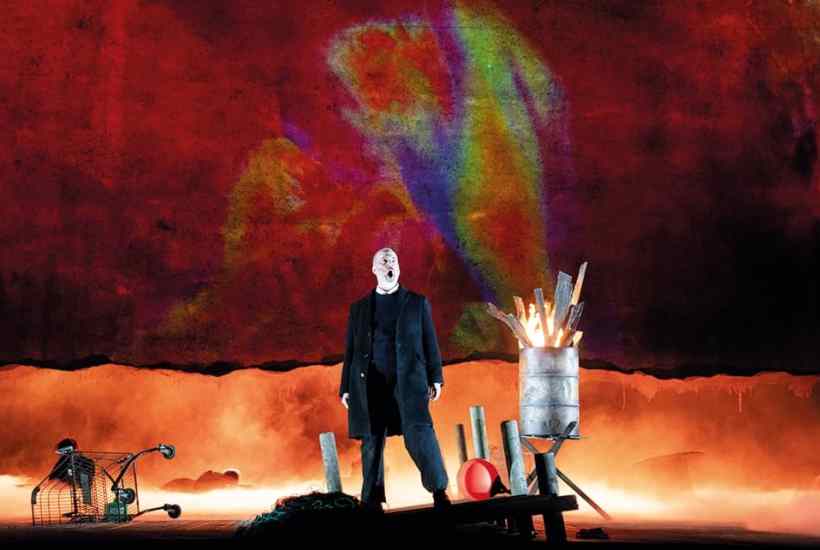
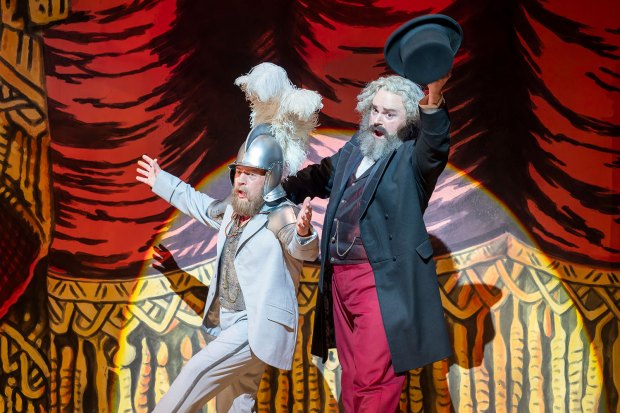
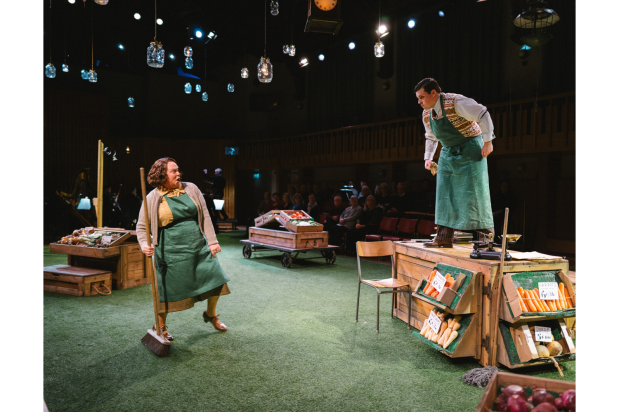

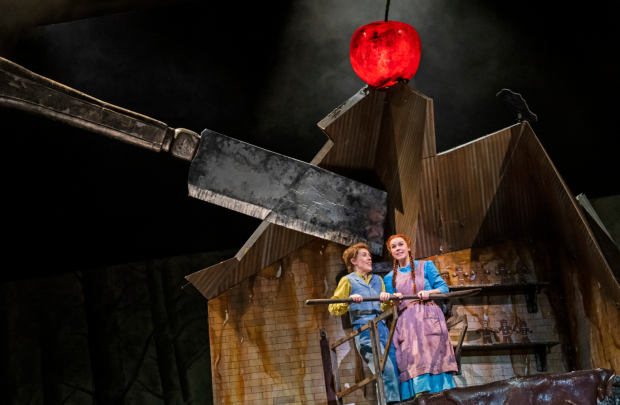
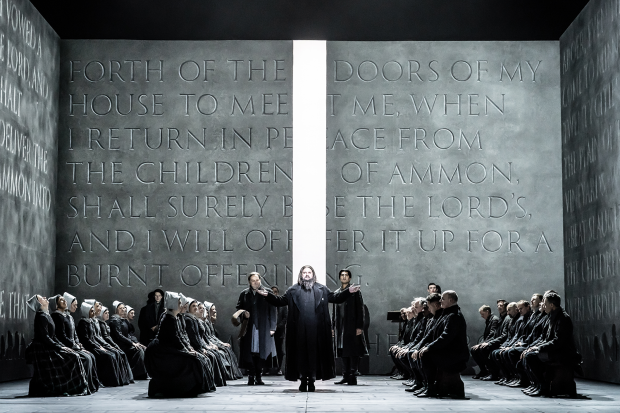
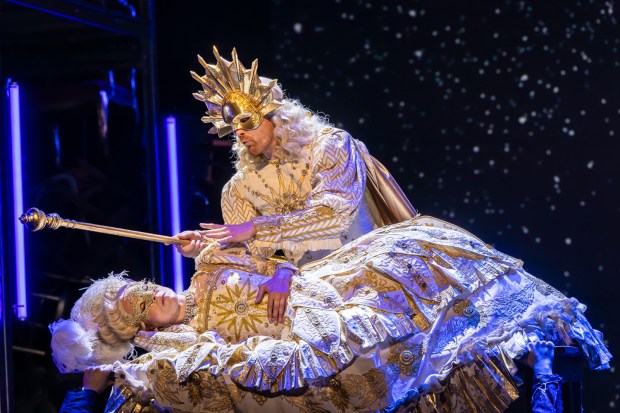






Comments
Don't miss out
Join the conversation with other Spectator Australia readers. Subscribe to leave a comment.
SUBSCRIBEAlready a subscriber? Log in